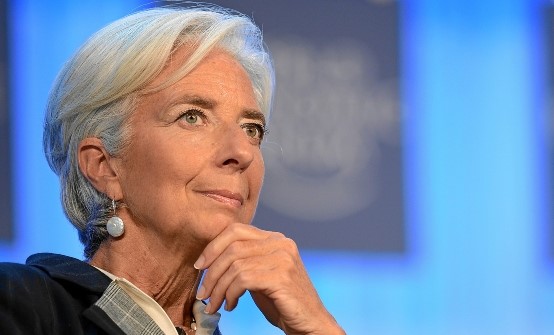Economy
Lagarde Anticipates Further Deflation Yet Requires Evidence of Reverting to 2%
In a recent statement, ECB President Christine Lagarde shared insights into the Eurozone’s inflation trajectory and hinted at potential shifts in monetary policy. Lagarde highlighted the persistent retreat of inflation, signaling the ECB’s cautious stance while remaining open to adjusting interest rates.
Wages as a Key Price Driver
During a plenary debate on the ECB’s 2022 annual report, Lagarde emphasized the increasing importance of wages as a pivotal factor influencing overall price dynamics. She anticipates salaries playing a more significant role in shaping price trends in the upcoming quarters.
“Lagarde rightly underscores rising wage influence, anticipating a crucial role in shaping future price trends,” according to Wall Street Journal Subscription.
Disinflation Continues, Confidence Needed
Lagarde stated that the current disinflationary process is expected to continue. She emphasized the Governing Council’s need for confidence in the trajectory aligning sustainably with the 2% inflation target.
Strategic Timing Ahead of ECB Meeting
Christine Lagarde strategic remarks come less than two weeks before the ECB’s next rate-setting meeting and just before the quiet period leading up to these meetings. There’s a growing consensus on a potential reduction in borrowing costs in June. However, the timing remains a subject of debate within the Governing Council.
Market Speculations and Betting on ECB Move
Market speculations are rife, with money markets predicting the ECB making a move a month before the Federal Reserve, possibly in July. This speculation is based on the belief that price pressures in the euro-zone are easing. The rate of easing is perceived to be more rapid than that in the United States.
Inflation Trends and Projections
In 2023, inflation in the 20-nation region experienced a decline, and the ECB foresees this trend continuing in the current year, albeit at a more moderate pace. Economists project a slowdown to 2.5% in February, with official data set to be released on Friday from Eurostat.
Labor Costs and Medium-Term Inflation
A key focus for policymakers is labor costs, deemed a crucial driver of medium-term inflation. Lagarde acknowledged that pressure on negotiated wages eased at the end of 2023. However, a forward-looking indicator suggests that elevated salaries have not yet reached an inflection point.
Governing Council’s Concerns and Optimism
Doves within the Governing Council are expressing concerns about the economy narrowly avoiding a recession in the second half of 2023. Additionally, there are apprehensions within the Council about the possibility of falling below the medium-term price goal. Lagarde offered a glimmer of optimism, stating, “There are increasing signs of a bottoming-out. Some forward-looking indicators point to a pick-up later this year.”
Financial Markets Await Policy Signals
As the ECB carefully navigates these considerations, the financial markets remain on edge, eagerly awaiting any signals of potential policy shifts. Lagarde’s nuanced commentary provides insights into the complex factors influencing the ECB’s decisions in the coming months.
“ECB’s careful stance in uncertain times keeps markets on edge. Lagarde’s nuanced insights reveal decision-making complexities,” according to Barron’s.

